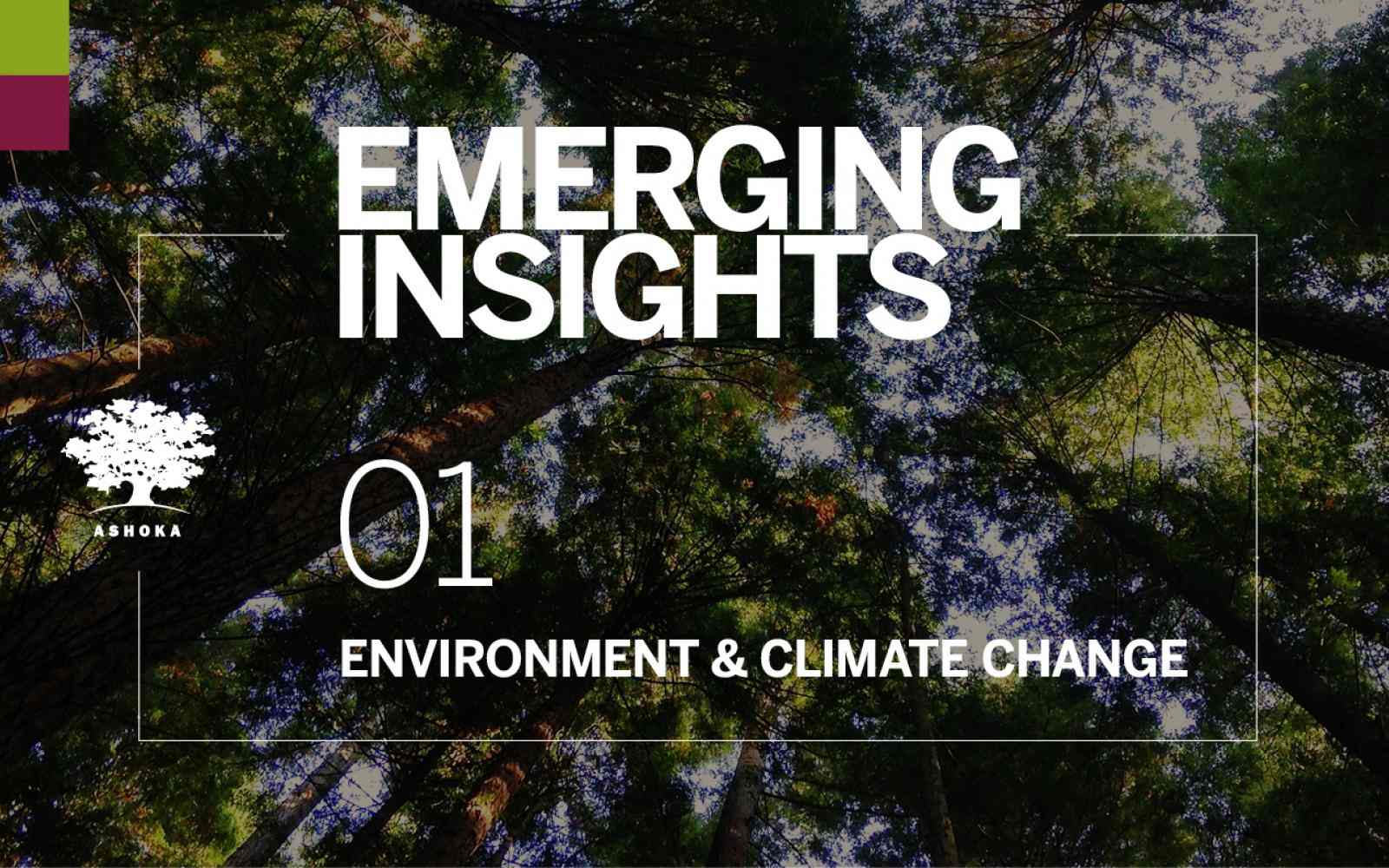The threats facing our planet are changing quickly, as are the proposed solutions. One thing is clear: there is a fundamental need to rebalance our relationship with nature. This requires a paradigm shift in how humanity sees itself, how we understand what nature is, and how we see ourselves in the unfolding arc of time.

As a response to this emergence, one week after the International Mother Earth Day, we are proud to share the key findings from Next Now Planet & Climate latest report “Thinking differently: ideas for action on planet & climate”, developed in collaboration with Ashoka’s Learning and Action Centre. The following key findings are based on an in-depth mapping with more than 600 Fellows working on planet and climate who have been elected during Ashoka’s 40-year history.
We need to move from seeing humanity as separate from and superior to nature and recognize the interconnectedness that means in fact, we are nature.
1. Everyone is necessary. Everyone has a role to play
Every person is involved in contributing to the collective impact humanity is having on the rest of the natural world. Every day, every person has the power and responsibility to play a role. Hence, one of the most important tasks is making sure no one is left out of this process.
In order to create inclusive pathways for everyone to contribute, we need to increase the diversity within the global community working on climate change. Approaches that deliberately enable the previously disenfranchised to be part of the solution and empower those who will be the worst and soonest hit by the impacts of climate change are particularly important.
For instance, Ashoka Fellow Wietse van der Werf is empowering unemployed youth and navy veterans to monitor Marine Protected Areas, embedding social inclusion into climate action. Wietze was one of the 12 leading social entrepreneurs who participated in the first edition of the Dela Programme, a systems change accelerator co-created by IKEA Social Entrepreneurship and Ashoka. Watch this video to see how Wietze scaled up his organization's indirect impact throughout the Dela global accelerator program:
2. Working with the complexity: we need holistic, systemic solutions
Each of the planetary crises we are facing sits at the intersection of several systems, such as national and global economic systems, the physical climatic system, and socio-political systems. This deep interconnectivity of issues requires that we tackle climate change in a holistic and systemic way.
The status quo prefers stability and systems often resist change.
Despite this challenging context, we can solve more than one problem at a time. The interconnectivity of issues can lead to an approach called “multi-solving”. Multi-solving is an approach that allows for several problems to be solved simultaneously, with each of the problems being given equal footing. One Ashoka Fellow who is taking this approach is Gary Cohen, founder of Healthcare Without Harm. Gary works with hospitals around the world for better waste management, eliminating harmful toxins, and more sustainable food procurement, as a way to simultaneously improve healthcare outcomes and environmental sustainability of the healthcare industry. Check out this video with more on Gary's work:
3. Decentralize decision-making
One way to address the complexity of these issues is through decentralization. This means empowering the communities, organizations, and people closest to the context to make decisions, rather than a centralized institution or government.
Any viable way forward must build on a fundamental reframing and restoration of our relationship with nature: one that is characterized by balance, respect, and reciprocation.
It is possible to amplify the impact of decentralized approaches through coordination and knowledge sharing across multiple communities, creating feedback loops both between communities who face similar challenges or share other resemblances and also back to centralized bodies such as the government to inform official policy. This allows decision-making to be more inclusive and provides ways to embed different types of knowledge, experience, and emotions as part of decision-making processes.
4. Update our economic structures to guide more equitable, sustainable decisions
What would an economic system look like if it was focused on human and planetary health rather than solely financial growth? There are multiple alternatives for how the economic system could evolve:
We need to redefine what we understand by value and wealth to prioritize nature over money. A shift in how we define wealth could be part of the solution: collectively realizing that nature is wealth and that financial wealth brings little advantage on an uninhabitable planet. This is the place we see the reframing of our relationship with nature potentially providing a north star.
5. Thinking differently: how re-examining the climate crisis can open new possibilities
Lastly, it is increasingly clear that we need to change the way we think about the climate crisis in order to address it more effectively. Planet & Climate latest report embarked on deep conversations with Ashoka Fellows to untangle exactly what this different type of thinking means, how they interpret what is currently happening, and what we can do as humans.
Access to the full report to learn from the overarching principles distilled from conversations with experts and scientists in the field, as well as a review of the existing literature on these topics.
